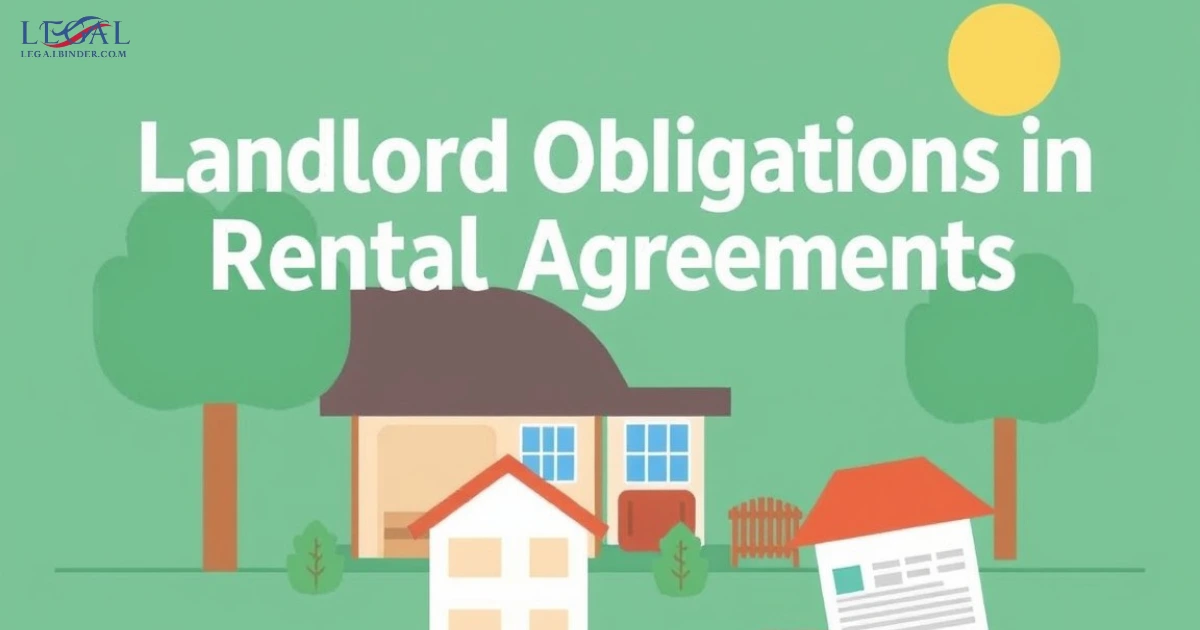Physical Address
304 North Cardinal St.
Dorchester Center, MA 02124
Physical Address
304 North Cardinal St.
Dorchester Center, MA 02124

Stepping into the world of rentals can be overwhelming, whether you’re signing your first lease or renewing a long-term agreement. One of the most important things to understand is Landlord Obligations California places on property owners. Imagine moving into a home and discovering the heat doesn’t work, mold is spreading in the bathroom, or your landlord enters without notice. Situations like these aren’t just inconvenient—they can affect your health, safety, and peace of mind. That’s why California law sets strict obligations for landlords to ensure fairness and livable housing for every tenant.

At USALegalBinder.com, our goal is to make legal information practical and clear so you know exactly where you stand in your rental relationship. This guide will walk you through the essential landlord obligations in California rental agreements and how they impact you directly.
Rental agreements aren’t just about monthly rent. They are legal contracts that outline responsibilities for both landlords and tenants. California law goes a step further by requiring landlords to provide certain protections no matter what the lease says. These obligations include maintaining a safe property, following notice requirements, and respecting your right to privacy.
Landlords must keep rental units in “habitable” condition. This means ensuring the property meets health and safety standards. According to the California Department of Consumer Affairs, a habitable property includes:
California landlords are obligated to repair issues that impact health or safety within a reasonable time frame. If your heater breaks in the middle of winter or there’s a leaking roof, your landlord must act quickly. If repairs are delayed, you may have legal remedies such as rent reduction or even breaking the lease without penalty.
Your landlord cannot simply show up unannounced. California Civil Code requires at least 24 hours written notice before entering for inspections, repairs, or showings. The only exception is an emergency. This rule protects your privacy and allows you to enjoy your rental peacefully.
In cities with rent control, landlords must comply with local ordinances. Even outside of those areas, the California Attorney General’s Office enforces statewide rent increase limits under AB 1482. In most cases, annual rent hikes cannot exceed 5% plus inflation, or 10%, whichever is lower.
California law sets strict limits on security deposits:
Landlords who withhold deposits improperly can be liable for damages up to twice the amount.
Beyond habitability, landlords must install smoke detectors, carbon monoxide detectors, and provide adequate trash containers. Properties built before 1978 also require disclosure of lead-based paint risks.
Landlords must follow the California Civil Rights Department laws, ensuring no tenant is denied housing based on race, gender, religion, disability, family status, or income source.
California’s fair housing laws are strict. Landlords cannot retaliate against tenants for reporting violations, requesting repairs, or exercising their rights under the lease.
If your landlord neglects their obligations, you have several options:

Yes. Heating is a basic requirement under California habitability laws.
At least 24 hours’ written notice, unless there’s an emergency.
No. Rent increases are limited by AB 1482 and local rent control laws.
Only unpaid rent, cleaning, and damages beyond normal wear and tear.
Understanding Landlord Obligations California helps you live confidently in your rental home. By knowing what landlords must provide—and how to respond if they don’t—you protect your safety, finances, and peace of mind. Whether it’s demanding timely repairs, checking rent increase limits, or ensuring your deposit is returned, the law is designed to protect you.
For more state-specific legal resources, visit USALegalBinder.com. Knowledge is your best tool for creating a rental experience that feels fair, safe, and secure. Stay informed and move forward with confidence.